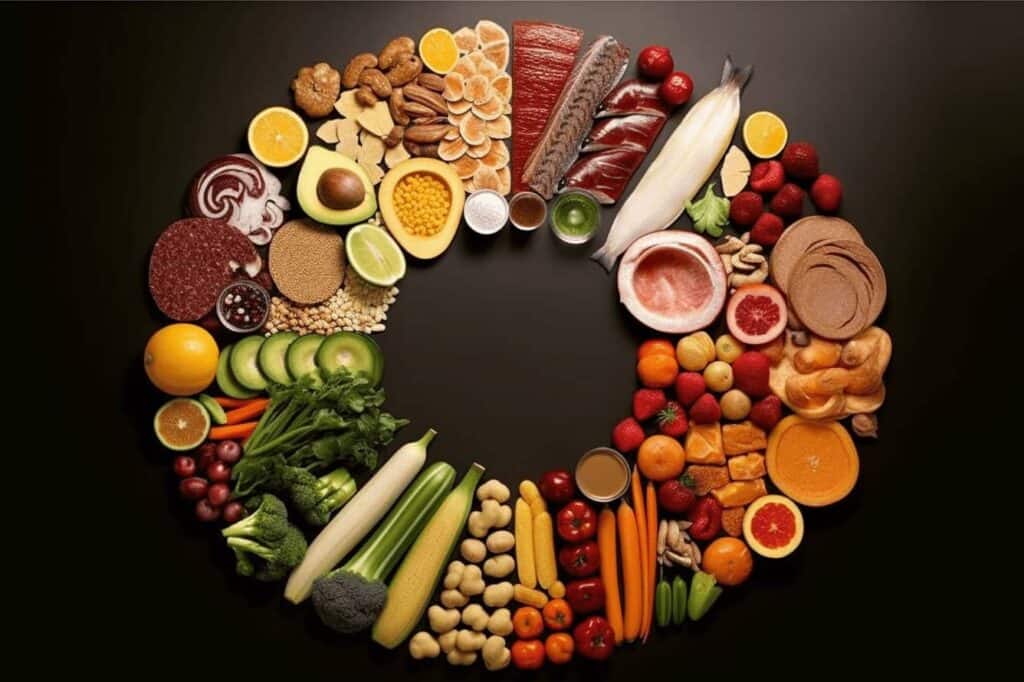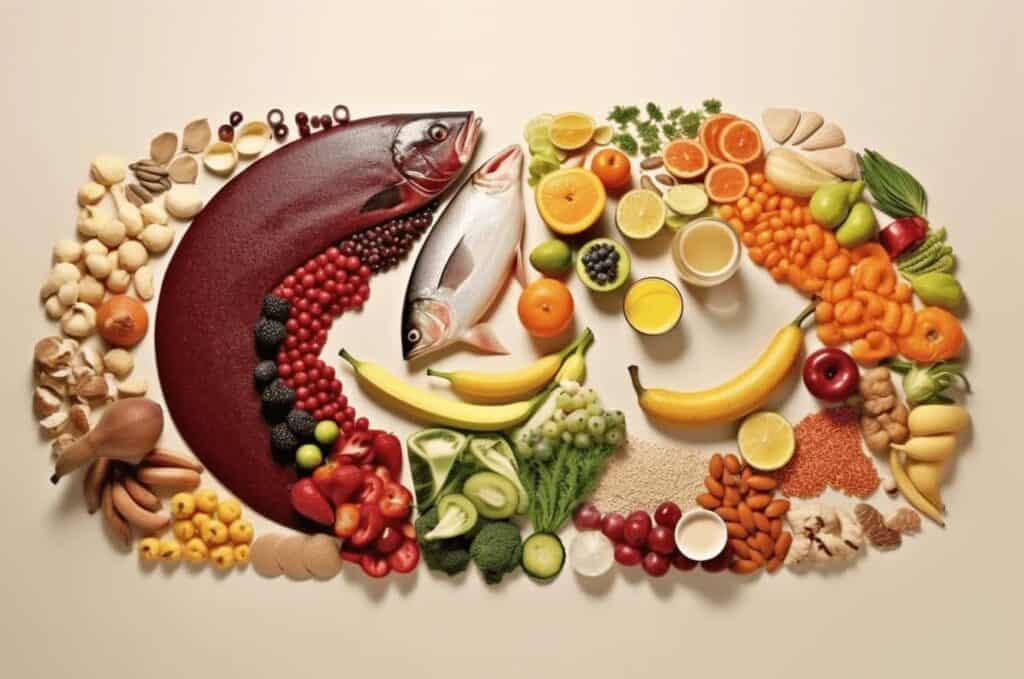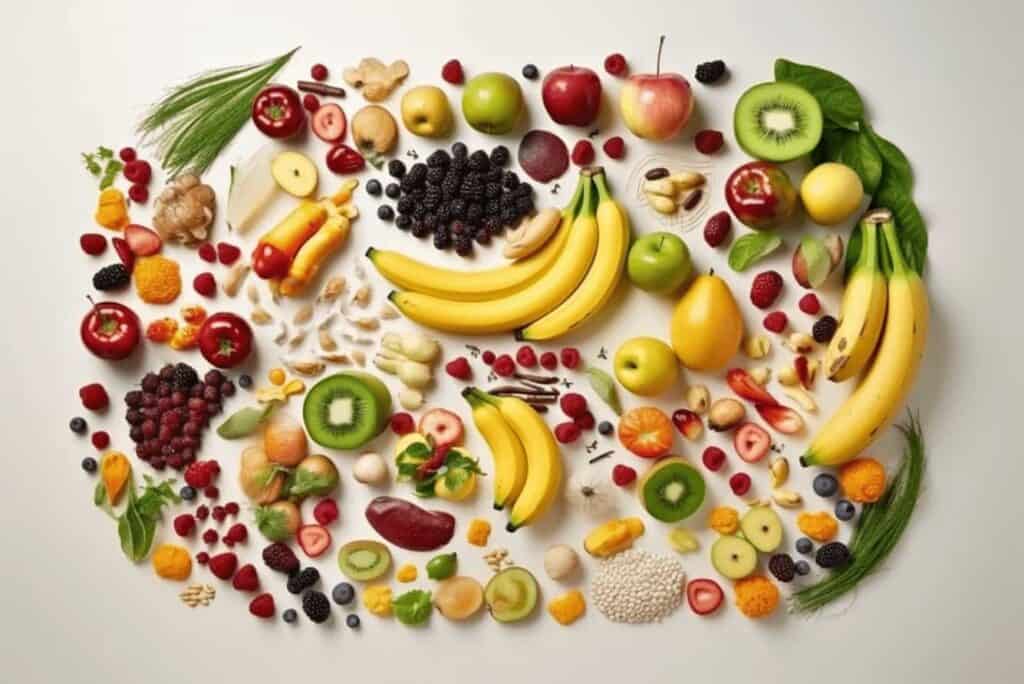Everyone wants to stay young and live forever. But is a long healthy life really the pot of golden at the end of the rainbow if you’re feeling unhealthy much of the time?
And why do so few of us feel good when we’re still thinking of ourselves as young and vital?
Two words: vitamin deficiency.
That’s the result of the Standard American Diet (SAD).
The Standard American Diet (SAD) has been the topic of much debate and controversy in recent years.
While it is true that SAD offers convenience and affordability, it also tends to be high in processed foods, sugar, unhealthy fats, and low in essential nutrients such as vitamins.
One critical consequence of SAD is vitamin deficiency, which poses significant risks for human health. The body requires vitamins to maintain optimal functioning across all organ systems. A lack of these vital nutrients can lead to various chronic diseases such as cancer, cardiovascular disease, autoimmune disorders, cognitive decline, and gastrointestinal issues.

Understanding The Standard American Diet
The Standard American Diet is characterized by high levels of processed foods, refined sugars, and saturated fats. This type of diet has become the norm in the United States due to cultural influences and marketing tactics used by the food industry. The availability and convenience of fast food chains have further perpetuated this trend.
The SAD tends to lack essential nutrients such as vitamins, minerals, fiber, and antioxidants. Instead, it provides an excess of empty calories that contribute to obesity and chronic diseases like diabetes, heart disease, and certain cancers. Additionally, a reliance on processed foods can alter gut microbiota composition leading to a host of gastrointestinal issues.
It’s important to understand how cultural influences and marketing strategies impact our dietary choices. By becoming more aware of these factors, we can gain greater control over what we consume.
In the subsequent section, we will delve into the importance of vitamins in maintaining optimal health despite deficiencies caused by the SAD.
The Importance Of Vitamins In The Body
Vitamins are essential organic compounds that perform various roles in the body. They help the body to function properly by providing energy, maintaining healthy tissues and cells, and supporting growth and development.
There are thirteen different vitamins that the human body needs, each with its unique functions. It is crucial to obtain these vitamins from food sources since our bodies cannot produce them on their own. Daily requirements for each vitamin vary depending on age, sex, and other factors.
For example, adults require around 15 milligrams of Vitamin E daily, while infants require only about 6 milligrams per day. To ensure optimal health, it is necessary to consume a balanced diet containing all thirteen vitamins in appropriate amounts.
Good dietary sources of vitamins include fruits, vegetables, whole grains, dairy products, lean meats, and fish. However, people following a Standard American Diet may be at risk of developing vitamin deficiencies due to the lack of nutrient-dense foods in their diets.

Common Vitamin Deficiencies Associated With Sad
Many individuals who consume the SAD diet are at risk for common vitamin deficiencies due to its lack of nutrient-rich foods. These deficiencies can lead to a range of health issues, including weakened immune systems, decreased bone density, and fatigue.
One such deficiency is that of Vitamin D. This essential nutrient is necessary for bone health and plays an important role in immune function. Unfortunately, SAD often lacks adequate sources of Vitamin D, leading to widespread insufficiency across populations.
While some may be able to obtain sufficient amounts through sun exposure or dietary intake from fatty fish or fortified dairy products, many will require supplementation.
Another common deficiency associated with SAD is that of Vitamin B12. This critical vitamin is needed for proper nerve function and red blood cell production. However, it is primarily found in animal-based products such as meat, eggs, and dairy – all items typically lacking in SAD diets which rely heavily on processed foods.
As such, those following this type of diet may need to consider taking a daily supplement to meet their recommended intake.
To combat these potential risks associated with SAD and subsequent vitamin deficiencies, incorporating more nutrient-rich whole foods into one’s diet can help ensure adequate vitamin intake. Additionally, choosing high-quality dietary supplements can also provide additional support where gaps exist in food choices.
By making proactive changes towards healthier lifestyle habits now, individuals can take control over their health outcomes and prevent long-term consequences down the road.
Chemicals and Processing Drain Food of Vital Nutrients
Today’s middle-age population may live longer than previous generations, but unless they change their approach to nutrition and lifestyle, the life expectancy for tomorrow’s youth will likely be different.
Because of obesity and the deficiencies associated with the Standard American Diet, many medical institutions don’t expect children to live as long as their parents.
Our quality of food, coupled with our choice of foods, has rendered us depleted in the vitamins and minerals we require to function and thrive.
Most of the foods we eat contain barely half of the vitamins, minerals, and proteins they did fifty years ago. Today’s high-yield wheat crops offer only half of the protein they did a hundred years ago.
Processing methods remove nutrients from food. And the fact that it takes so long for food to reach us means that it has lost much of its nutrition by the time it reaches us.
Organic foods are free of dangerous GMO’s (genetically modified organisms), but they aren’t perfect because it can take decades for soils to fully recover from years and years of past abuse.

How Chemicals and Food Processing Methods Affect Our Food
- The over-cultivated soil in which food is grown is depleted of chromium, zinc, manganese, molybdenum, calcium, and magnesium.
- The super phosphate fertilizers that are used to replace manure mainly contain nitrogen, potassium, and phosphorus (NPK), but lack many of the vital trace elements contained in good, old-fashioned manure.
- Pesticides and herbicides contain chemicals that destroy soil microorganisms and affect plant nutrition.
- Refining wheat into white flour will strip it of 50-88% of its cobalt, magnesium, zinc, chromium, and manganese.
- Refining sugar cane into white sugar depletes it of 99% of its magnesium and 93% of its chromium.
- Polishing rice removes 75% of its zinc and chromium.
- Many additives, artificial coloring, preservatives, and stabilizers destroy nutrients and can also affect nutrient absorption.
- Pollution will also deplete nutrients such as calcium, magnesium, and zinc.
Read more about the Health Risks of Pesticides in Food.

How to Get the Vitamins and Minerals You Need
First, forget what you think you know about adequate vitamin intake. Take a fresh approach to your health.
Your old approach isn’t taking into account what experts are finding out about the sorry state of our soil, the depleting state of processed foods, and our bodies’ agonizing struggles to overcome vitamin and mineral deficiencies.
Everyone may eventually need extra vitamins and minerals to help compensate for deficiencies in the standard American diet. In times of special need – during pregnancy, periods of overwhelming stress, or illness – nutrients can be good therapy, so it’s important to keep up with current nutrition research.
For example, think about the recommended daily allowance (RDAs) for vitamins and minerals, which is the amount of each nutrient you need every day. These figures were calculated back in the 1940s when soils were healthier, and food processing and refinement was relatively rare.
Today, we need far more vitamins and minerals than the circa World War II guidelines given out by many health practitioners suggest.
Real food – free from unnecessary additives and processing – contains the nutrients we need for good health and longevity, so be wary of terms like ‘vitamin enriched’.
That means the food was stripped bare of its nutrient goodness during processing, and then something was added in an attempt to make up for the nutrient loss. That’s in the hope it gives the food some sort of bare minimum value.
By midlife, most Americans will have developed vitamin deficiency. But why wait until you’re sick before starting to give your body what it needs? Regular maintenance is always preferable to emergency management.

Overcoming and Preventing Vitamin and Mineral Deficiency
Proper nutrition is crucial in preventing vitamin deficiencies. Consuming nutrient-rich foods such as fruits, vegetables, whole grains, and lean protein can provide the body with an adequate amount of vitamins and minerals necessary for optimal health.
These foods contain essential nutrients that our bodies need to function properly, including vitamins A, C, D, E, K, and B-complex.
Here are the top tips for preventing a vitamin and mineral deficiency.
- If you cannot get fresh, organic fruits and vegetables, look for frozen over canned.
- Avoid processed foods, fake foods, and junk foods.
- Never buy anything that contains hydrogenated or partially hydrogenated oil – i.e. never eat anything containing trans fats.
- If you don’t know what a word on the label means, or cannot pronounce it, don’t eat it.
- Don’t buy products with a long shelf life – the better they do on the shelf, the worse they are for your body.
- Never eat food products that have been vitamin-enriched as they are usually completely devitalized during processing.
- Avoid food that has been genetically modified or engineered.
- A digestive aid or probiotic supplement can assist with nutrient absorption, helping to increase your nutrient intake.
- A high quality, daily multivitamin and mineral supplement is essential.
Remember, when implementing any kind of dietary change, take it slow and pay attention to how you feel first.
Start feeling better than you ever have in your life by giving up the Standard American Diet. Supplement your vitamin and mineral regimen with individualized specifics depending on factors of age, gender, weight, and any health conditions.
Dietary supplements may be recommended by healthcare providers to ensure proper intake. It is important to note that while supplements can be beneficial in preventing deficiencies, they should not replace a balanced diet.
When it comes to maintaining good health and preventing potential risks associated with vitamin deficiencies, taking proactive steps towards ensuring proper nutrition is key.
Incorporating nutrient-rich foods into your diet and discussing supplement options with your healthcare provider can help you take control of your nutritional needs and maintain overall wellness.

Standard American Diet Final Thoughts
The Standard American Diet (SAD) is characterized by high consumption of processed foods, refined sugars, and unhealthy fats. These dietary habits have been linked to a range of health issues, including vitamin deficiencies.
Some common SAD foods that contribute to vitamin deficiencies include fast food, sugary snacks, and soft drinks. While taking vitamin supplements may help address some of the nutrient deficiencies caused by the SAD, they cannot make up for an overall poor diet.
Vitamin deficiencies from the SAD can develop over time due to chronic malnutrition or inadequate absorption in the digestive tract. Certain ethnic or cultural groups who consume a limited variety of foods may be at higher risk for these types of deficiencies.
Fortunately, making changes to one’s diet can often reverse vitamin deficiencies caused by the SAD. A balanced diet rich in fruits, vegetables, whole grains, lean proteins, and healthy fats can provide all necessary vitamins and minerals without reliance on supplements. For those with severe deficiencies or underlying medical conditions affecting nutrient absorption, medical intervention may be necessary.
Sources:
- U.S. Department of Health and Human Services: https://health.gov/our-work/nutrition-physical-activity/dietary-guidelines
- Harvard Health: https://www.health.harvard.edu/newsletter_article/Snapshot_of_the_American_diet_Foods_out_of_balance
- Yale University: https://climatecommunication.yale.edu/publications/climate-change-and-the-american-diet/
- National Library of Medicine: https://pubmed.ncbi.nlm.nih.gov/21139124/
- CDC: https://www.cdc.gov/nchs/fastats/diet.htm
- CDC: https://www.cdc.gov/diabetes/ndep/pdfs/dietary_guidelines_slides.pdf

